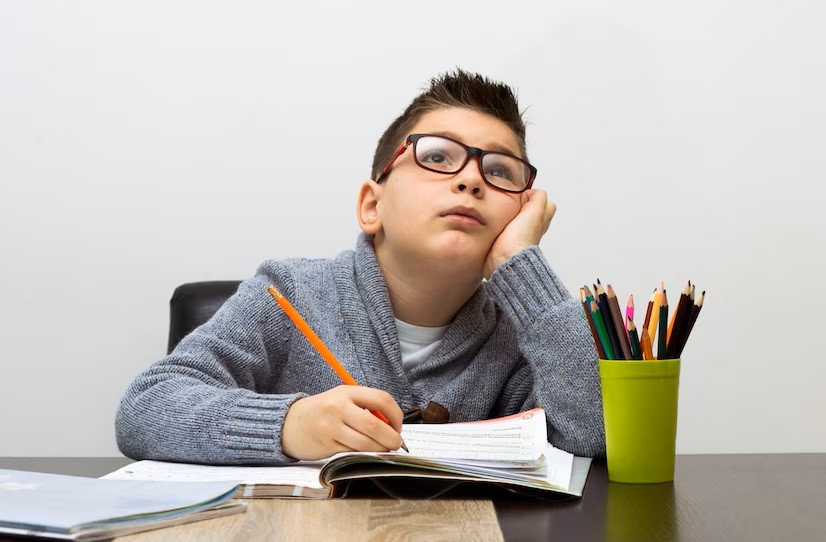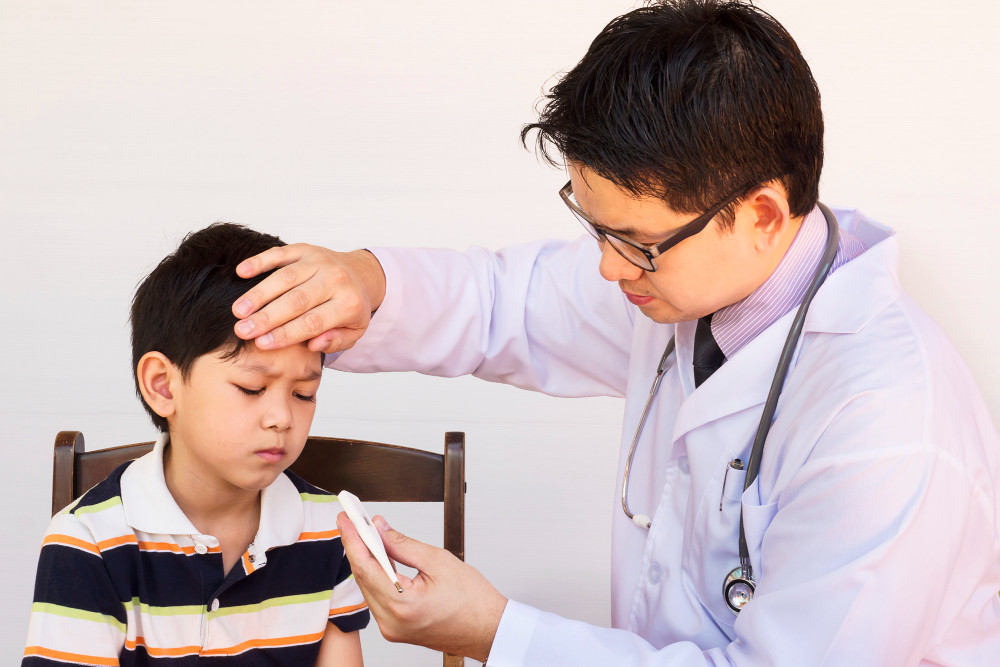ADHD is the abbreviation for attention deficit hyperactivity disorder. With ADHD, a child has differences in brain development and activity that affect concentration or attention, the ability to sit still, and self-control.
Not all children struggling with concentration have ADHD. There are various factors that can contribute to concentration issues in children.
What are the causes of concentration disorders in children?
Anxiety
In younger children, separation anxiety is the most common cause of difficulty concentrating. Children may be worried about being separated from their parents for a long time and think about bad events when they were separated from their parents.
Children may also experience anxiety, such as fear of making mistakes or fear of being embarrassed, which makes it difficult to concentrate.
Obsessive-compulsive disorder
Obsessive-compulsive disorder (OCD) can also disrupt children's concentration. OCD is characterized by the belief that certain behaviors in the mind will prevent negative outcomes and provide relief.
Instead of completing tasks and maintaining focus, children with OCD may prioritize following their obsessions or compulsions.
Stress or trauma
Children who witness something unpleasant or experience violence may have more difficulty concentrating. Traumatic events make children lack a sense of security so that fear and anxiety take over them more.
Learning disorders
Children who explore more and turn the pages of books rather than reading them may experience learning disorders such as dyslexia. Dyslexia can cause children to feel embarrassed and frustrated, especially when they see other children who can read fluently.
How do you distinguish concentration disorders due to ADHD or other causes?
Concentration problems due to ADHD are different from concentration problems due to other causes. Children with ADHD have difficulty concentrating on something because they are easily distracted. They may daydream more, forget things, and appear absent-minded. They are also hyperactive, have difficulty sitting still in their chairs, and behave impulsively.
However, a diagnosis of ADHD cannot be made just by looking at a child's behavior at school. You need to take your child to visit and consult with an expert to get an accurate diagnosis.
Having a child with ADHD can be very challenging because they may not be able to participate in school activities as well as their classmates. For this reason, children with ADHD need to undergo medication and treatment to help them focus and concentrate better, control themselves better, and develop the same social and emotional abilities as children their age.
If you need medical advice or consultation, you can either visit a doctor or make use of the consultation features that are available in the Ai Care application by downloading the Ai Care application from the App Store or Play Store.
Looking for more information about pregnancy, breastfeeding, and the health of women and children? Click here!
- dr. Monica Salim
Child Mind Institute (2023). Not All Attention Problems Are ADHD. Available from: https://childmind.org/article/not-all-attention-problems-are-adhd/
KidsHealth (2022). ADHD. Available from: https://kidshealth.org/en/parents/adhd.html
Mayo Clinic (2021). Separation anxiety disorder. Available from: https://www.mayoclinic.org/diseases-conditions/separation-anxiety-disorder/symptoms-causes/syc-20377455
CDC (2022). Obsessive-Compulsive Disorder in Children. Available from: https://www.cdc.gov/childrensmentalhealth/ocd.html
Child Mind Institute (2023). Signs of Trauma in Children. Available from: https://childmind.org/article/signs-trauma-children/
Keath Low (2022). What It’s Like for Kids With ADHD. Available from: https://www.verywellmind.com/understanding-children-with-adhd-20686











